 i think you mean 0,8
i think you mean 0,8 If you can V grind the box you will get away with the 120 it also depends what you are making ?

Trying to weld 25*25*3mm box section using a borrowed 120A MIG welder. Using 8mm wire on the highest power setting and 6/10 wired feed, welds look
OK, but I don't think penetration is great.
Am I asking to much of the welder?
I could pre heat with a blow torch, but it would really slow me down.
Alternative is to pay out for something like a Clarke 160.
Photos to follow later.
[Edited on 16/6/13 by nick205]
8mm wire is thick  i think you mean 0,8
i think you mean 0,8
If you can V grind the box you will get away with the 120 it also depends what you are making ?
Post up a picture if you can, would be easier to see if you are getting enough heat into the joint
Personally I would use 0.6mm wire on a small machine.
If you are able to blow holes through the work then you have enough power to get full penetration, as above have a decent V grove and work slowly and
you should be fine.
Bigger would be better if you are welding a structural part.
3mm tube is no prob for that rating
Like above post a good clear (in focus) pic of the weld. Also do a test weld on one face and brake the weld that will tell you how deep it is
penetrating
Oops, certainly do mean 0.8mm wire!
Have some 0.6mm too, so could try that.
I' making a soap box kart for a local derby.
Probably would be better with thinner walled box, but had very cheap 3mm wall readily available.
Does weight really make much of a difference when rolling down hill? I'd have thought a heavy car would be much the same speed as a light one as its gravity that's pulling you down
I welded a 5mm brake pedal with a 90amp, I just kept grinding back and it worked fine.

quote:
Originally posted by Mr Whippy
Does weight really make much of a difference when rolling down hill? I'd have thought a heavy car would be much the same speed as a light one as its gravity that's pulling you down
After seeing races on the tv I really wish there was some near Aberdeen it looks so much fun
Just one thing to bear in mind with welding plant, and that is;
just because a company calls their model an "XXX 150" or "150 XXX" for that matter
doesn't mean that it welds at 150 amps.
It must be very tempting for the maker (and I use that term loosely) when bringing out a
new replacement for their "ZZ90" to then call it the "ZZ95".
Just to show I'm not just having a go at the lower end of the market my own Lincoln is
a good example. Called the "Lincoln 210" you would be forgiven if you expected 210 amps,
but actually puts out a mere 185.
Cheers
Paul G
Photos of progress so far. I'm getting better, but still not totally convinced it's getting enough penetration. It's a chassis for a
soap box cart, with a longer term view to modifying to accept a little Honda motor afterwards.
All comments and advice would be appreciated 
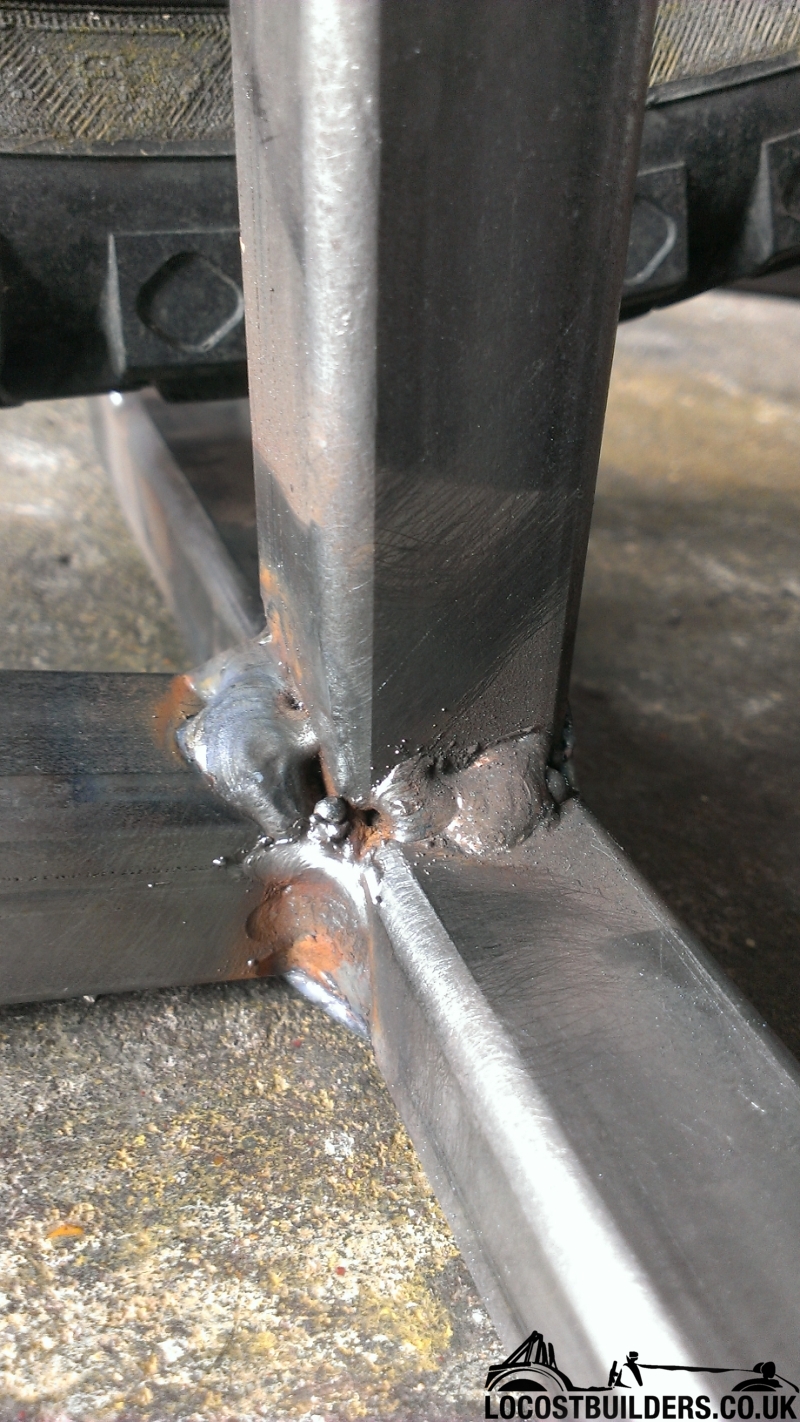
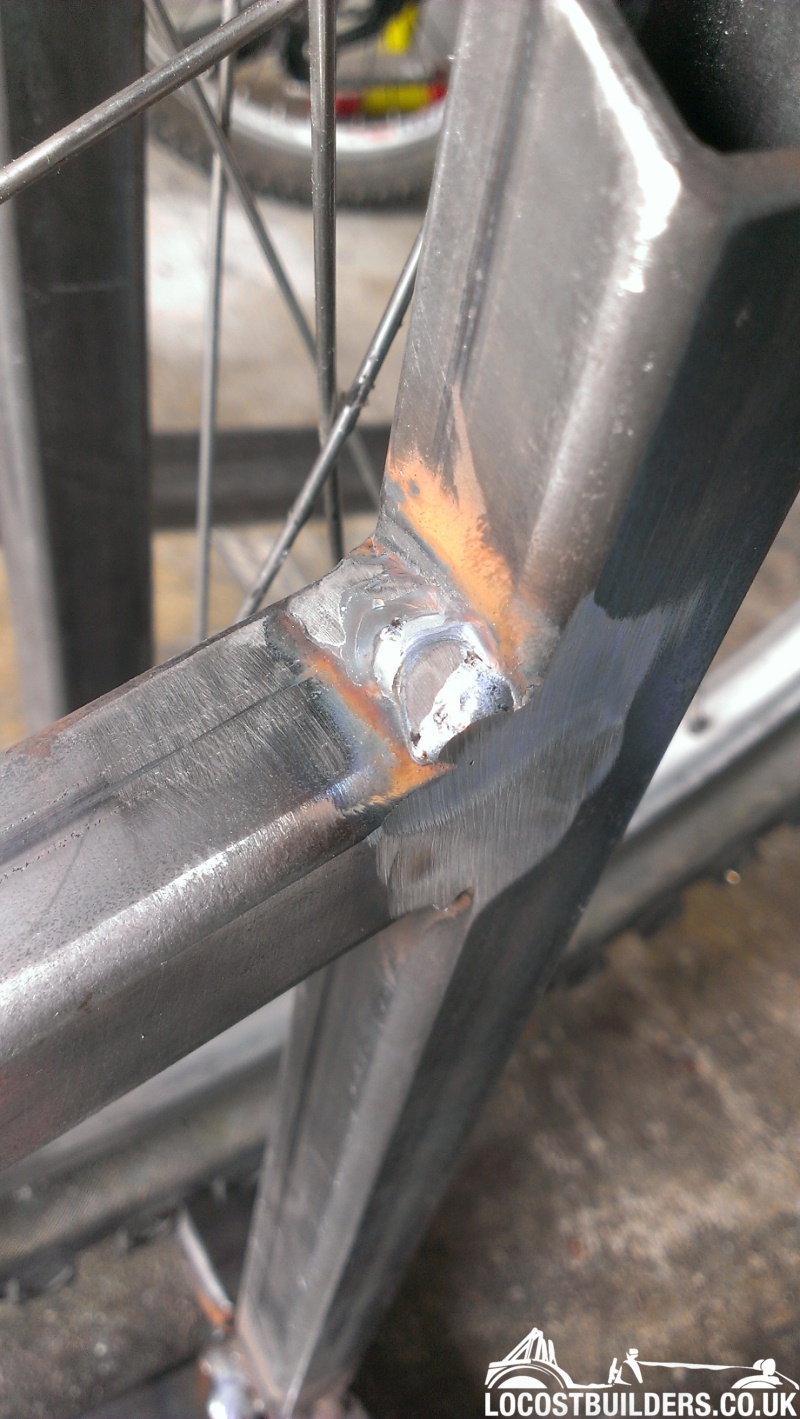
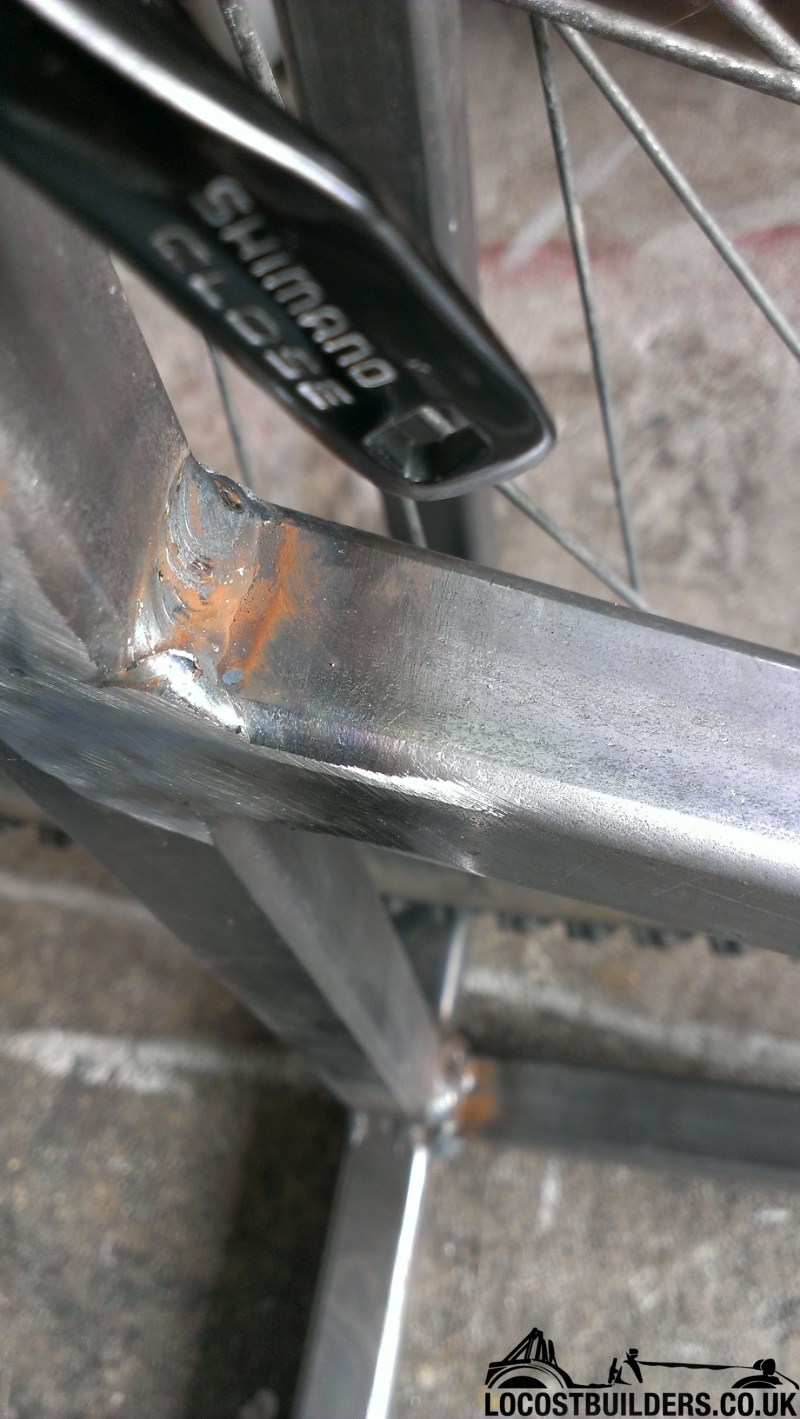
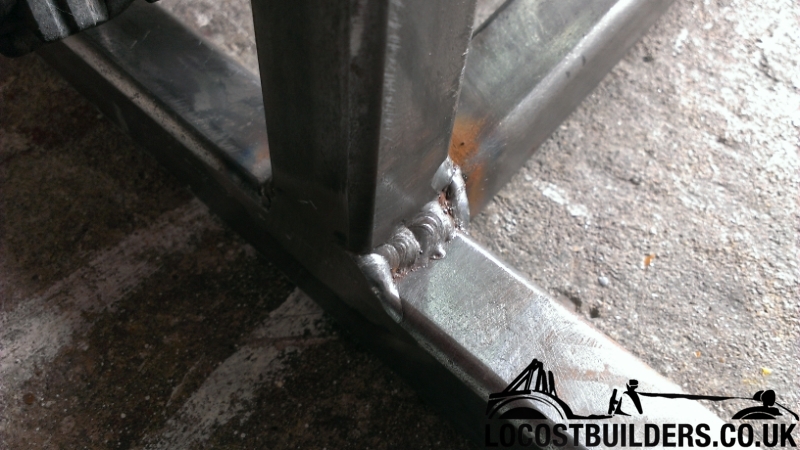

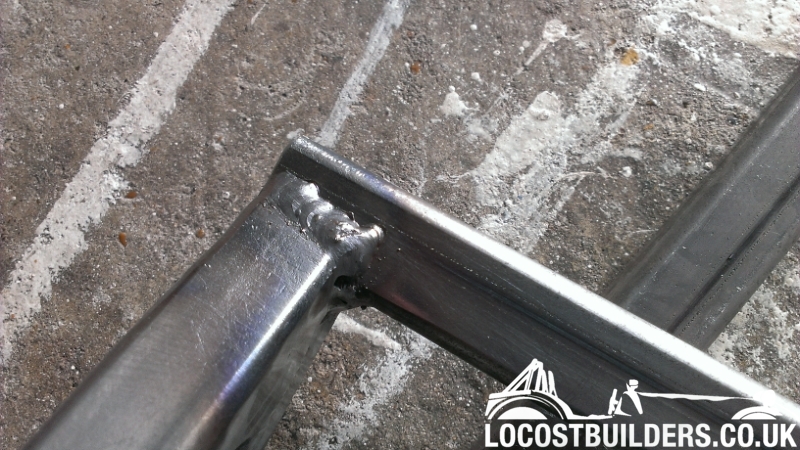
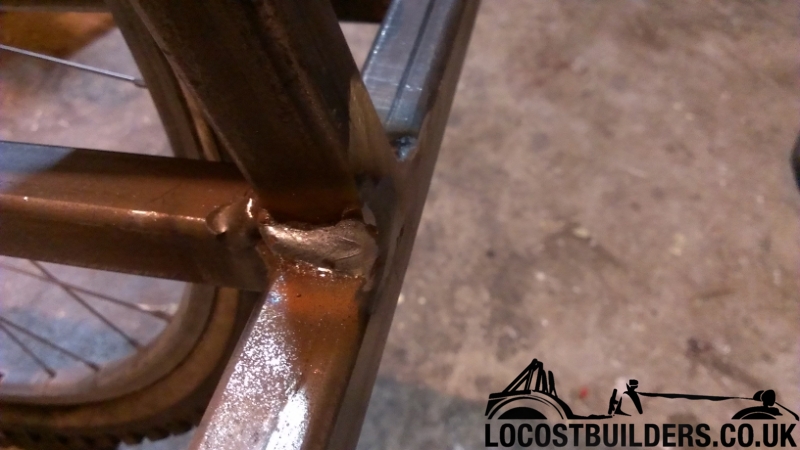
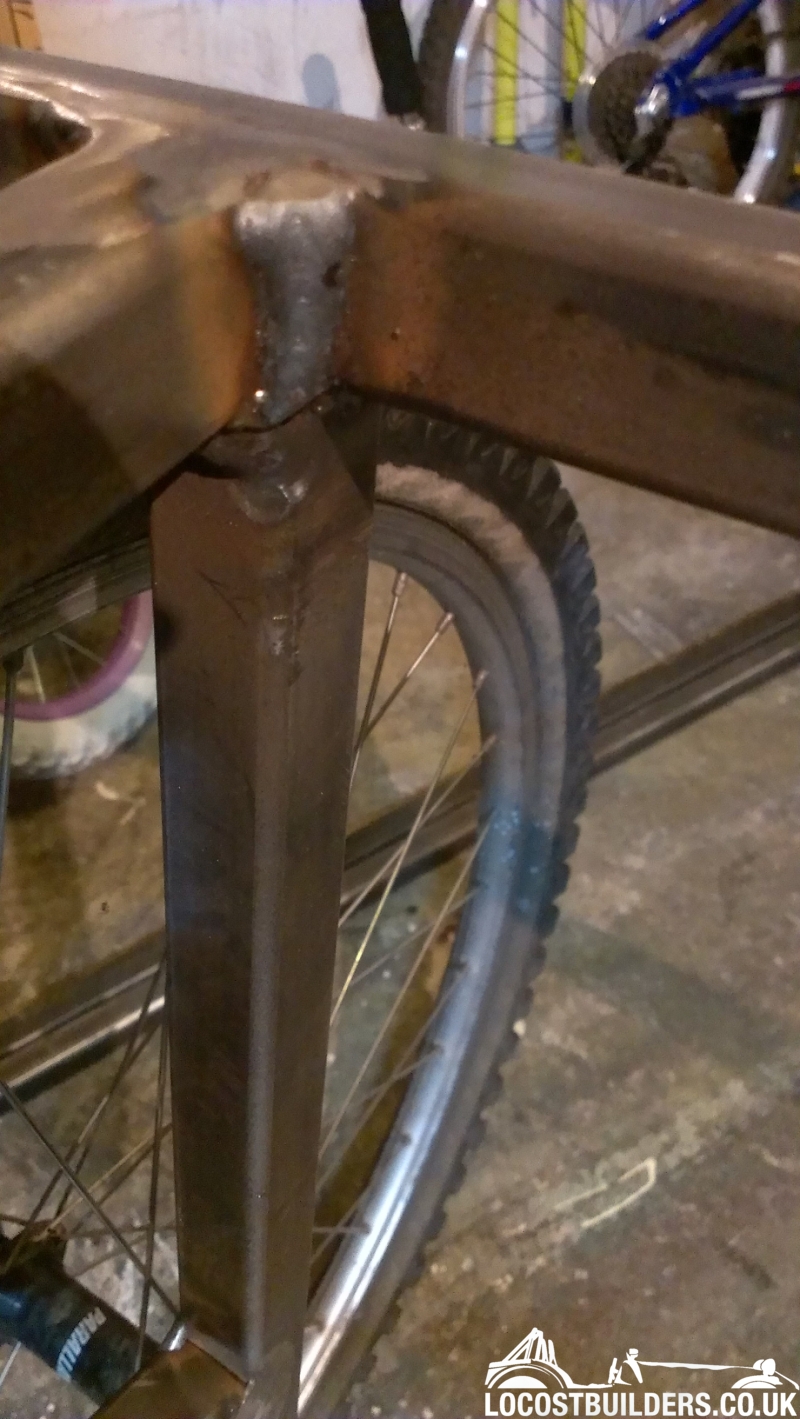
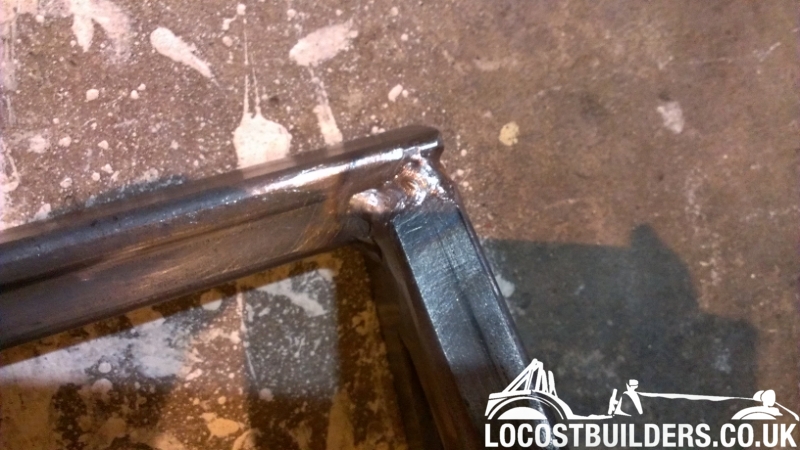
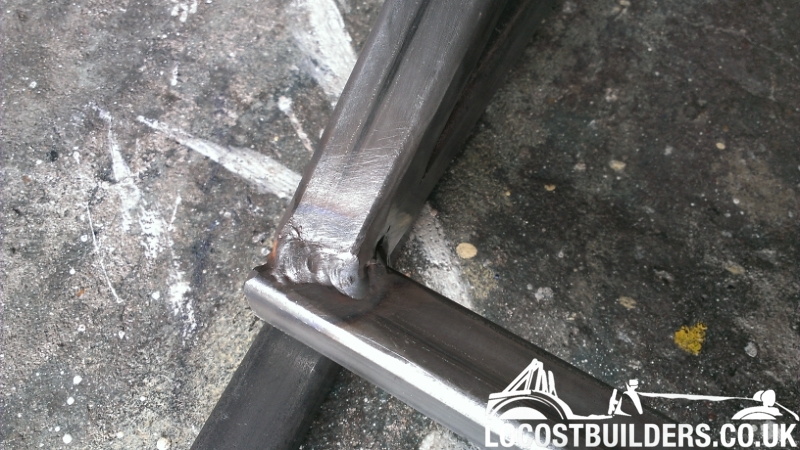
A couple of those inside corner joints look more than acceptable, also it looks like you are getting enough heat into the metal on at least a few of
those welds.
Make sure you have the ground on a good clean piece of metal, very important to have a good ground on a mig, because good ground, bad ground or no
ground that wire is still going to come out.
Looks like you need to take a little bit more time on the start and end of the weld, start the arc and pause to build up the start of the weld,
proceed forwards doing a loop the loop pattern and when you get to the end pause a little.
Gas coverage looks pretty decent, could bump it up to 6 like other people have said to rule it out as a problem.
I think it's more of a matter of practice now.
Any more comments and tips would be very welcome!
I have seen worse welds than that, on manufactures chassis, at Kit Car Shows.
When you get to the end of a run of weld, before you stop, move the wire back along the weld, for about 3mm.
[Edited on 17-6-13 by 40inches]
Will try the slight return at the end of the run - thanks!
It doesn't look pretty, but as has been said, I too have seen worse on a 'professional' kit/race car chassis.
Power looks OK, reasonable penetration evident in some of the welds. A good quality '120' will be adequate, but definitely on the low side.
Cleanliness helps, remove the mill scale from the joint area (heavy abrasion), cut a V in a butt and/or leave a gap between joints. A gap will ensure
the arc is presented with edges, with less conduction across a surface. get the filler speed right and it'll look (and feel) great.
I have a SIP Automig 100, fan cooled, it'll run at it's max duty cycle all day. Bought in 1986 (at an eye watering price back then) and in
almost daily use. I've even used this on 3mm box (made a Land Rover roofrack).
The 2nd machine is a Migatronics 5000MX. Rated at 140A, but purposely deigned for automotive panel work, it's not happy with high loads.
Fantastic machine, bought in the late 80's, so ssmmoootthh. I've just converted it to take a EuroTorch, since the original (non-Euro)
perished after the 30 odd years. I now have 4 metres of torch....
So, yep, don't get obsessed by those Amp figures in the specs., some are at very low duty cycles. Good for the pub only. Some standard R1 engines
can produce 300 bhp (with ram air)....